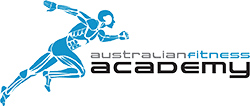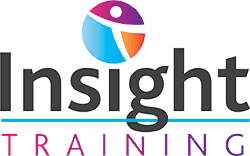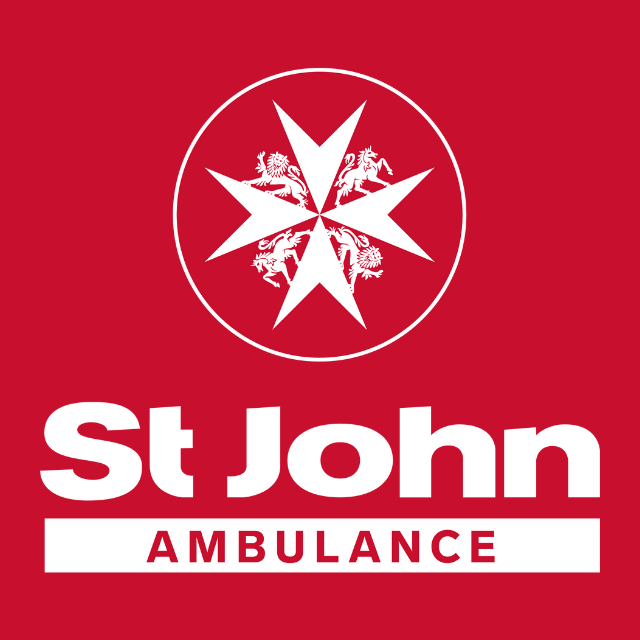Exam Preparation: How to Ace Your Studies

If just the thought of exam preparation makes your stomach churn, you’re in the right place. We understand that exams can be a stressful time for everyone, so we’re here to help you calm your nerves and maximise your chances of success.
In this blog, we will explore the most common types of exams and provide you with strategies to effectively prepare for any assessments you may have. Whether it’s multiple-choice tests, long-form essays, or short-answer questions, we’ve got you covered. By the end, you’ll feel more confident and fully equipped to tackle these challenges head-on.
Understanding different exam questions and formats
Knowing what types of exam questions and formats you could be up against helps you feel more prepared and can alleviate anxiety. Here are the most common types of exam formats.
1. Multiple-choice
Multiple-choice exams comprise questions with several answer options, requiring you to select the correct one. They assess not only your memory and understanding but also your ability to differentiate and eliminate incorrect choices.
These exams include a mix of straightforward and complex questions, some involving data interpretation or the application of knowledge to new scenarios. Efficient time management is crucial during these tests to avoid spending too long on difficult questions at the expense of easier ones.
2. True/false
The true/false format tests your precision in understanding key concepts. Each statement is either completely accurate or misleadingly false. While these questions may appear simple, they often involve nuances and technicalities that require close attention to detail. It’s not just about what you know, but knowing it well enough to spot falsehoods.
To excel in these exams, sharpen critical thinking skills and meticulously review study material. Small details often determine the truthfulness of a statement. Remember, if any part of the statement is false, the answer must be false.
Prepare to read carefully, trust your knowledge, and navigate this format with confidence. Avoid generalities and watch out for absolutes, as they can be the key to finding the right answer.
3. Matching
In matching format exams, your task is to pair columns of related items—think of it as a test of your ability to recognise patterns and correlations. Each side of the column will have different elements, such as dates with historical events, vocabulary with definitions, or causes with their effects. Your keen eye for detail and understanding of how pieces of information are intertwined will be integral to your success here.
Remember, this isn’t about memorising isolated facts; it’s about seeing the bigger picture and threading together the strands of knowledge you’ve acquired. Study smart by focusing on relationships within the material and practice with sample matching exercises to enhance your performance.
4. Essay
Are you daunted by the prospect of crafting complete essays within the constraints of exam time? Don’t worry, because essay exams provide an opportunity for you to demonstrate your critical thinking skills and articulate your understanding in a structured manner.
To excel, organise your thoughts clearly with an introduction, main body, and conclusion. Remember to support your points with evidence; quality is more important than quantity in this case. Take the time to plan and review your work, ensuring that your essay stays focused and flows logically.
Will this exam format allow you to showcase the depth of your knowledge? Absolutely, and with practice, you can learn to present your ideas clearly and concisely even under exam conditions. So why not start preparing now and turn your apprehension into achievement?
5. Short-answer
Short-answer questions go beyond the recognition of the correct answer—you must recall and express it clearly and concisely. These questions focus on key terms, concepts, and figures, challenging you to demonstrate a strong grasp of the subject in just a sentence or two.
Short-answer exams also assess your ability to showcase effective communication. To conquer them, study with a precise understanding. Memorise definitions, key points, and essential facts. Quick recall and staying focused are your strongest allies. Leverage the power of summary and focused study to excel in short-answer questions. Start practising with flashcards or summary notes for exam success.
6. Oral tests
Facing an oral test can be as challenging as a written exam, but it presents a valuable opportunity to engage directly with examiners and demonstrate your knowledge dynamically. Approaching this exam with confidence allows you to use verbal skills to express your understanding in ways that written words may not fully capture.
Oral tests evaluate not only your knowledge but also your ability to communicate, think on your feet, clarify concepts, and persuade your listener. To succeed, focus on clear articulation, active listening, and providing concise, well-structured responses. Practice makes perfect, so seize every opportunity to engage in discussions or deliver presentations before your exam. Remember, it’s not just what you say, but how you say it that truly matters.
Effective study techniques that deliver results
Say goodbye to last-minute cramming and embrace scientifically proven study methods. Here are a few techniques that’ll help boost your memory retention.
The Pomodoro technique
The Pomodoro Technique or ‘interval studying’, is a powerful learning tool that works by breaking up your study schedule into manageable, regular sessions over a longer period.
This technique leverages the psychological spacing effect, where information is better remembered if learning sessions are spaced out rather than crammed into a short timeframe. Studies show that learners who adopt this method retain information more effectively, thus increasing their ability to recall knowledge when it counts.
Mind mapping
Mind mapping is an innovative and visually stimulating method for structuring information, assisting learners in visualising concepts and their connections to reinforce understanding.
This approach encourages creativity and helps in organising thoughts coherently, making complex topics more accessible. By portraying the subject matter in a radiant, tree-like structure with branches representing different aspects, mind mapping can boost memory retention and clarity for learners, which is pivotal during revision.
The Leitner System
The Leitner System revolutionises the way you retain knowledge using the simple, yet powerful principle of spaced repetition with a twist of active recall.
Imagine conquering your study material with a system of flashcards sorted into groups, where each group is reviewed at increasing intervals—strategically re-examining what you’re struggling with more frequently.
This proven method ensures that you’re focusing your energy where it’s needed most, leveraging the power of cognitive psychology to help you master complex concepts faster and retain them longer. It’s not just about studying smarter; it’s about retaining knowledge with confidence.
The Feynman technique
The Feynman Technique is a learning technique that focuses on simplicity to help you develop a deep understanding of a subject. Here are the four steps you need to follow:
- Study your chosen topic
- Explain it as if you were teaching it to a child or someone new to the topic
- Identify gaps and go back to studying
- Organise, and simplify your new knowledge
By breaking down complex theories into basic building blocks, this technique solidifies your grasp and enables you to share knowledge with crystal clarity.
Interleaving
The interleaving technique is a study method that involves mixing different topics or forms of practice to improve learning. Instead of focusing on one topic until it’s mastered (a common approach called ‘blocking’), interleaving shuffles the order, injecting variety and challenge into your study routine.
But how exactly does mixing it up help with learning? Research suggests that by engaging the brain in differentiating between types of problems, you’re enhancing your ability to learn and apply knowledge. This approach can feel more difficult at first but ultimately leads to stronger, longer-lasting learning.
By alternating between subjects, your brain establishes more connections, aiding comprehension and the ability to apply knowledge to new situations. It also prevents burnout on a single topic and boosts long-term retention.
Essential exam day tips and tricks
On the day that will put your efforts to the test, it’s crucial to equip yourself with strategies that optimise performance. So, how can you stay calm and ensure that your hard work pays off?
- Pack all your essential materials the night before so you can arrive early for your exam and avoid any last-minute panics.
- Start with a nutritious and well-balanced breakfast to fuel your brain—studies show that students who eat well in the morning perform better.
- During the exam, pace yourself. Remember, it’s a marathon, not a sprint! Take a few deep breaths if you start to feel overwhelmed, and keep a close eye on the clock to manage your time effectively.
- Celebrate!
Mastering the art of studying is well within your reach. By understanding the various exam formats and incorporating effective study techniques into your learning plan, you’ll be ready to ace your exam when the day comes. Good luck.
Browse Results
Diploma of Counselling
There is a growing need for people who can offer support services to adults and teenagers who may need support and guidance. If you have the desire to help people lead a happier life to reach their full potential, a career as a professional Counsellor...

Diploma of Nursing
Build a meaningful career that makes a difference with the HLT54121 Diploma of Nursing. This nationally recognised qualification provides the essential skills, knowledge, and practical training needed to become a qualified Enrolled Nurse in Australia....


Graduate Diploma in Management
The Graduate Diploma in Management is an online postgraduate qualification that is ideal for busy senior managers, with a potential entry pathway through any of our Graduate Certificates and study that is highly supported, fits into your schedule, and...

Graduate Certificate in Management
The Graduate Certificate in Management is an online postgraduate qualification that is designed for newer and ambitious professionals, with entry possible through management experience alone and a study structure that easily accommodates full-time work...

Certificate III in Community Services (WA Only)
The Certificate III in Community Services is perfect for entry level community services workers who support individuals through the provision of person-centred services. Work may include day-to-day support of individuals in community settings or suppor...

Certificate IV in Fitness
Take the next step in your career and gain the qualification you need to become a Personal Trainer. If you currently work in the fitness industry as a Gym or Group Fitness Instructor, elevate yourself to the next level by studying the SIS40221 Certific...

Certificate III in Fitness
If you’re looking to begin your career in the fitness industry, studying the SIS30321 Certificate III in Fitness is the perfect qualification to get you started. Gain all the knowledge and skills you need to enter the industry as a Gym Instructor or Gr...

Personal Trainer Course
Join the fitness industry as a Personal Trainer and turn your love for fitness into a rewarding career by graduating in both the SIS30321 Certificate III in Fitness & SIS40221 Certificate IV in Fitness. Enjoy the flexibility of being your own boss...

Bachelor of Health Science (Clinical Nutrition)
Clinical nutritionists integrate traditional food wisdom and current scientific evidence to motivate individuals and communities to eat well and live healthier lives. The Bachelor of Health Science (Clinical Nutrition) is supported by a strong underpin...

Bachelor of Health Science (Naturopathy)
Naturopathy is a whole medical system combining theory (philosophy and principles) and practise that uses an array of natural therapies to support healing and maintain health. Naturopaths aim to treat the underlying causes of illness and disease. The c...

Certificate III in Community Services (Perth Only)
Are you a natural when it comes to providing guidance to people? Would you like to kick start a career in Community Services? The Certificate III in Community Services (CHC32015) is the perfect entry-level qualification for prospective Community Servic...

Certificate III in Individual Support (Ageing OR Disability) (Perth Only)
If you have a passion for helping those most in need, this qualification is one way you can utilise your knowledge for the benefit of others. Package the Certificate III in Individual Support (Ageing or Disability) (CHC33021) to save time and gain know...

Certificate lll in Early Childhood Education & Care (Perth Only)
If you love working with children and want to learn more about providing quality education and care in a range of environments, this course is for you. The Certificate lll in Early Childhood Education and Care (CHC30121) can provide you with an entry-l...

Certificate III in Individual Support (Disability) (SA Only)
The Certificate III in Individual Support (Disability) is designed to equip you with the practical skills and knowledge to support people living with disability in a variety of care settings. With a focus on person-centred support, you’ll learn how to...


Certificate III in Non-Emergency Patient Transport (VIC Only)
Our Promise We are confident in the delivery of our training. On successful completion of the course, graduates will be guaranteed a telephone interview for vacant Patient Transport Officer positions in the Non-Emergency Patient Transport division. So...

Diploma of Community Services (Perth Only)
The Diploma of Community Services qualification reflects the roles of community services, case management and social housing workers involved in the managing, co-ordinating and/or delivering of person-centred services to individuals, groups and communi...

Certificate IV in Business (Perth Only)
This qualification is suited to those working as administrators and project officers. In this role, individuals use well-developed skills and a broad knowledge base to apply solutions to a defined range of unpredictable problems and analyse information...

Certificate III in Process Manufacturing (Perth Only)
The Certificate III in Process Manufacturing is designed for those working or looking to work in production, warehousing, or factory roles. This hands-on course equips you with the practical skills needed to operate machinery, follow safety procedures,...

Certificate III in School-Based Education Support (Perth Only)
Are you interested in becoming a teacher’s aide? Work with teachers to create a comfortable and supportive environment for children’s learning. You will ensure lessons run smoothly while also developing the student’s literacy, numeracy and resear...

Certificate III in Allied Health Assistance (Perth Only)
A Certificate III in Allied Health is your entrance into the world of health services! This course will teach you to support workers in a range of fields such as audiology to social work. You will use your qualification to gain an entry-level job in ei...

